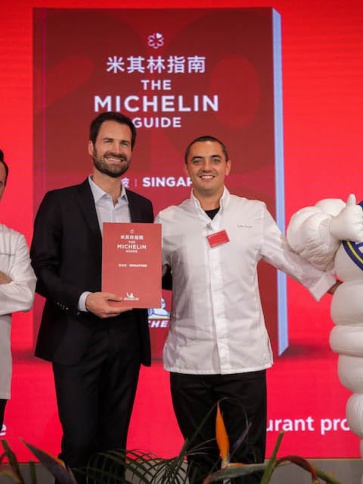The name is taken from a dish in traditional French cuisine called quenelles de brochet, referring to a mixture of creamed fish combined with breadcrumbs and an egg binding, formed into an egg-like shape and poached. Now, a quenelle is more commonly used to describe any food made into a similar shape, such as ice cream, beef tartare or mashed potatoes.

Cindy Khoo, executive pastry chef of Hilton Singapore, remembers refining this technique under the tutelage of her mentor during her time as commis at Shangri-la Hotel Singapore. “It’s one of the basics we learned at the start of our culinary journey," she says. "It took me a couple of months to be able to execute it confidently. At the beginning, it usually came out of shape or stuck to the spoon and we would have to redo it over and over again.”
She recommends placing the spoon into a container of warm water before scooping. The spoon has to be hot enough to release the quenelle, but not so hot that it immediately melts it. “For stickier, more icy food like sorbets, you may need to rub the back of the spoon in the palm of your hand to release it from the spoon.”
It’s a technique that takes practice but is well worth the effort. “The classic and elegant shape is a timeless design that really elevates the plate by adding a touch of culinary flair to it.”




















